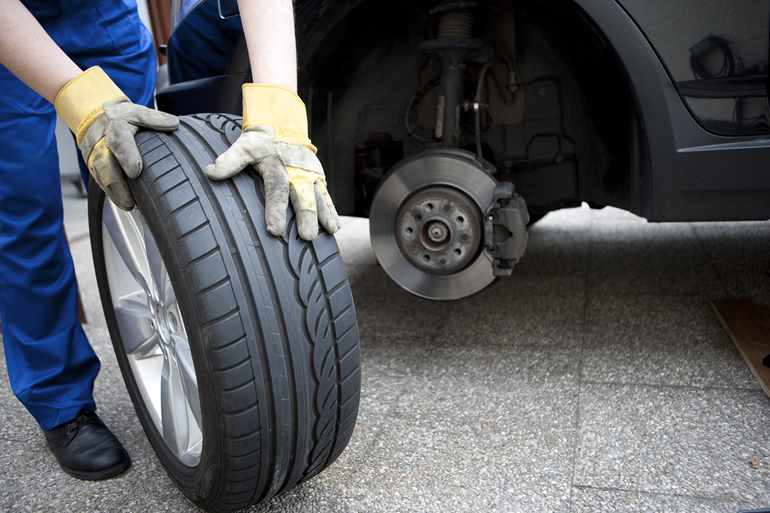
What is tyre insurance, and why do you need it?
Do You Really Need To Cover Your Tyres? Let's Take A Look...
Tyre insurance is becoming increasingly popular for UK drivers, and for good reason; pothole damage is on the rise and costs can soon add up. But what actually is tyre insurance, what does it cover, and why should you think about investing in it?
The basics of tyre insurance are easy to understand - let's start with what it actually is:
What Actually Is Tyre Insurance?
Tyre insurance, as the name suggests, is insurance coverage specifically dedicated to your vehicle's tyres. Your vehicle's tyres are an essential part of the safe driving of the vehicle - think about it, they're the only part of your vehicle that is actually in contact with the road. They can take a lot of punishment, however, and can need replacement or repair.
The problem is that tyres can be expensive to replace and unless you're especially vigilant about your tyre condition, you generally won't get advanced notice. It'll be a case of a large bill that you have to pay immediately, otherwise your vehicle is simply not usable - driving with your tyres excessively worn or damaged is a criminal offence, as well as being highly dangerous.
That's where tyre insurance comes in. Just like regular car insurance can take the sting out of expensive car repairs, tyre insurance does the same with excessive tyre replacement costs. All you need to do is claim on your tyre insurance when your vehicle needs new tyres for whatever reason, and you won't have to pay the total upfront cost yourself - simple.
What Causes The Need For Replacement Tyres?
Tyres are a consumable on your vehicle - namely, they will wear down as time goes on, and need replacement. Everywhere you drive, the rubber of your tyre is gradually wearing down due to the friction with the road. That's what gives you the grip you need to stick to the road, but it also means that your tyres will need replacing at regular intervals. General wear is not covered by tyre insurance.
That's not all, however, there's also accidental or malicious damage. For example, if you drive too hard or fast up a curb and damage the rubber of your tyre. Or you wake up and find that your tyres have been slashed.
Are All Tyres Covered By Tyre Insurance?
Tyres of all sizes and types are covered by tyre insurance, but in the case of run-flat tyres you need to ensure that you specifically state your vehicle has them when you apply for coverage. Run-flat tyre coverage is independent of "regular" tyre coverage, so if your vehicle is fitted with them, you need to make sure you add that specific cover to your policy before you can make any claims.
What Are The Limits On Your Coverage?
You will be covered between £150 or £300 annually, inclusive of balance, valve, & VAT, depending on the limit you select. Your mileage limit can be up to 50,000 miles per year, and you will be able to claim up to four times.
What's The Difference Between Wheels And Tyres?
Direct Gap now offers combined Tyre and Alloy Wheel Insurance - but what's the difference between the two? The simple way to tell the difference is that the wheels are in the centre and the tyre is the rubber circle that surrounds it. It sounds obvious, but many people simply refer to their car's "wheels" as the whole thing, whereas they are actually two individual entities. Separate scratch and dent insurance can be purchased to ensure your alloy wheels continue to look their best, in addition to your tyre insurance.
Why Is Tyre Insurance A Valuable Investment?
Your tyres being in good condition is essential for you being able to use your vehicle. Tyres are continuing to get more expensive, however, as the size of wheels continue to grow. Similarly, if your vehicle needs specialist tyres, such as off-road capable or high-performance tyres, they can become expensive. Tyre insurance takes the sting out of those big bills.
It's up to you to decide whether it's "worth it" or not. But for a comparatively small addition to your regular gap insurance policy, you can get a great deal of peace of mind that you have extra coverage to help keep your tires in great condition.
What Can Cause An Insurer To Not Pay Your Claims?
If your tyre tread depth is found to be under 2mm, your coverage will not be honoured. This is also the case if your tyres have been modified from manufacturer specification, or you have exceeded your 50,000 miles per year mileage limit.
To learn more about the specifics of tyre insurance, or to enquire about getting cover, contact Direct Gap today.










